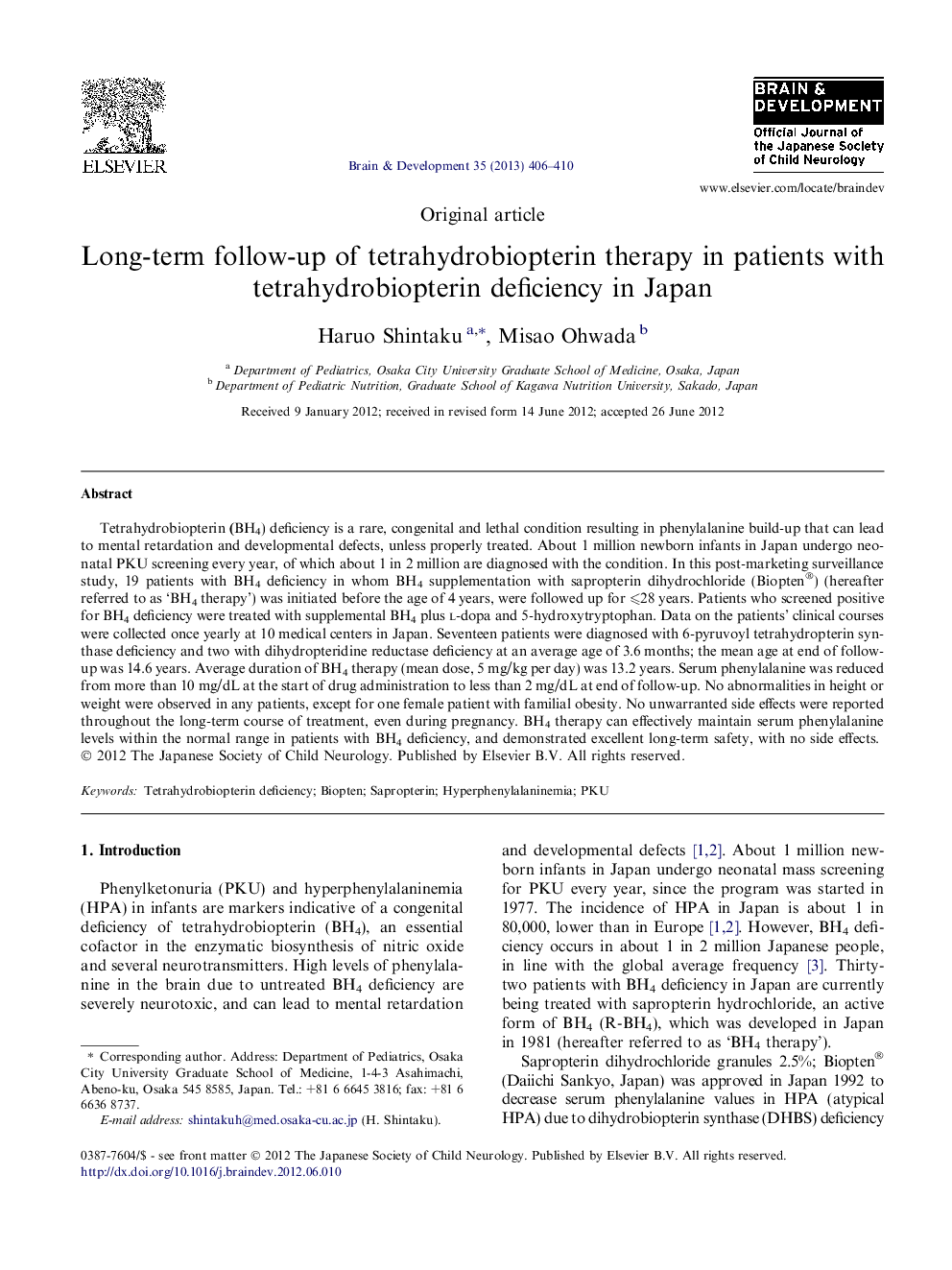| Article ID | Journal | Published Year | Pages | File Type |
|---|---|---|---|---|
| 3037078 | Brain and Development | 2013 | 5 Pages |
Tetrahydrobiopterin (BH4) deficiency is a rare, congenital and lethal condition resulting in phenylalanine build-up that can lead to mental retardation and developmental defects, unless properly treated. About 1 million newborn infants in Japan undergo neonatal PKU screening every year, of which about 1 in 2 million are diagnosed with the condition. In this post-marketing surveillance study, 19 patients with BH4 deficiency in whom BH4 supplementation with sapropterin dihydrochloride (Biopten®) (hereafter referred to as ‘BH4 therapy’) was initiated before the age of 4 years, were followed up for ⩽28 years. Patients who screened positive for BH4 deficiency were treated with supplemental BH4 plus L-dopa and 5-hydroxytryptophan. Data on the patients’ clinical courses were collected once yearly at 10 medical centers in Japan. Seventeen patients were diagnosed with 6-pyruvoyl tetrahydropterin synthase deficiency and two with dihydropteridine reductase deficiency at an average age of 3.6 months; the mean age at end of follow-up was 14.6 years. Average duration of BH4 therapy (mean dose, 5 mg/kg per day) was 13.2 years. Serum phenylalanine was reduced from more than 10 mg/dL at the start of drug administration to less than 2 mg/dL at end of follow-up. No abnormalities in height or weight were observed in any patients, except for one female patient with familial obesity. No unwarranted side effects were reported throughout the long-term course of treatment, even during pregnancy. BH4 therapy can effectively maintain serum phenylalanine levels within the normal range in patients with BH4 deficiency, and demonstrated excellent long-term safety, with no side effects.
